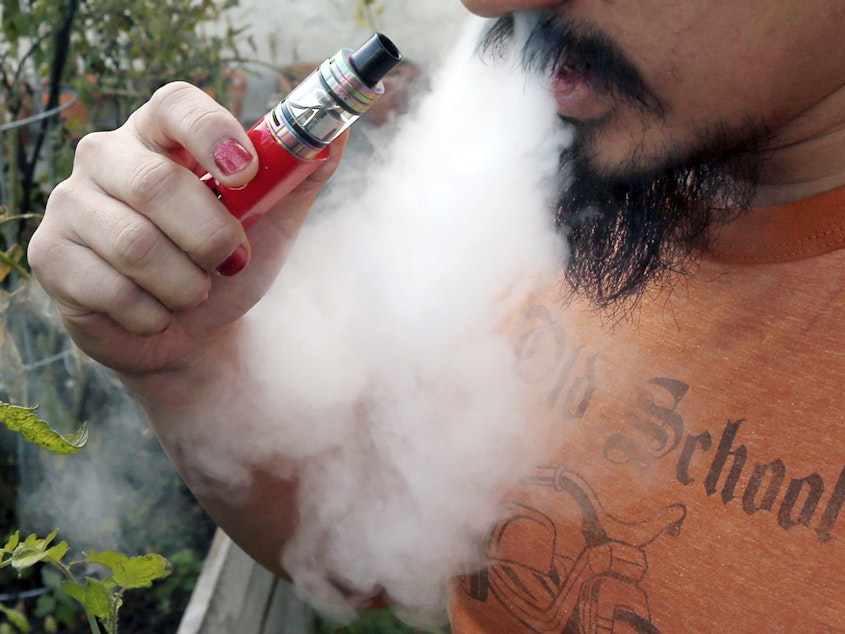Vaping Related Lung Injuries Climb Past 2,500 And 54 Deaths

The number of vaping deaths have climbed over 50 as the outbreak of lung injury cases have topped 2,500 nationwide, according to the Centers for Disease Control and Prevention.
While the number of hospitalizations slowed in recent weeks, the latest figures released on Thursday show that most people who have had lung injuries after vaping had consumed THC-containing products.
As of Dec. 17, there were 2,506 hospitalized cases of e-cigarette, or vaping, product use associated lung injury, which is now referred to as EVALI by the CDC. The incidents were reported in all 50 states, as well as the District of Columbia, Puerto Rico and U.S. Virgin Islands, since the summer.
Fifty-four deaths have been confirmed in 27 states and the District of Columbia.
The CDC's data suggest that the outbreak might have peaked in mid-September, when reported cases were climbing by the hundreds each week. In late August there were fewer than 200 severe lung illness cases reported. But by the end of the following month, there were more than 1,000.
Investigators say black-market THC vaping cartridges are playing a central role in the spread of EVALI. They have pointed to vitamin E acetate, a thickening agent that's used in black market vaping products, as a "chemical of concern."
But it is not the only possible culprit. "There are many different substances and product sources that are being investigated, and there may be more than one cause," the CDC said.
The agency said that Dank Vapes — THC vapes of "unknown origin" was the most commonly reported product brand used by patients nationwide, "although there are regional differences," the CDC said.
While Dank Vapes was most commonly reported in the Northeast and South, patients in the West reported using TKO and Smart Cart brands. The most common brand reported in the Midwest is Rove.
The CDC recommends that the "best way for people to ensure they are not at risk while the investigation continues is to consider refraining from the use of all e-cigarette, or vaping, products."
Earlier this week, Congress moved to pass legislation to raise the minimum age to buy tobacco products and e-cigarettes, to 21 from 18, amid the backlash against e-cigarettes and vaping products. The American Lung Association reports at least 16 states and Washington, D.C., have already enacted new age limits. [Copyright 2019 NPR]



